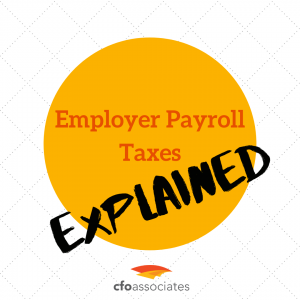
In the business world you often hear the term payroll taxes. Payroll is a crucial part of our country’s tax revenue collection strategy. But many do not realize that payroll taxes are paid to three separate departments, at various rates and reasons. Companies in the US pay payroll taxes at the Federal, State, and Local (City & County) levels.
- Federal Payroll Taxes are composed of Social Security, Medicare, and Unemployment taxes. Commonly known as FICA & FUTA taxes, Social Security (6.2% of first $132,900) and Medicare (1.45% on all Wages) taxes are paid by both employers and employees. Unemployment is only paid by employers, as a 6% tax of the first $7,000 paid to each employee. In theory, the taxes collected from employers and their employees are used to help fund social programs for all. They are an important part of our Financial System’s retirement and medical programs.
- State Payroll Taxes are composed of State Unemployment rates imposed on gross wages so the individual states can fund their unemployment programs. Tax rates can vary state to state and based on the industry your company operates in.
- Local Payroll Taxes are imposed on businesses within city and county limits. These vary across the country, and are typically used to fund local projects and social services within those jurisdictions.
Did you know that you and your business was paying for these many programs and services? Be sure to share this information with your business owner friends! And as always, feel free to contact us with any questions you may have. We are happy to help explain the payroll tax process!
If you want to learn about other tax topics and so much more, check out our other blogs here!
%20cfo_associates_logo.png?width=1000&height=470&name=(FINAL%20DRAFT)%20cfo_associates_logo.png)
%20cfo_associates_logo.png?width=160&height=75&name=(FINAL%20DRAFT)%20cfo_associates_logo.png)

COMMENTS